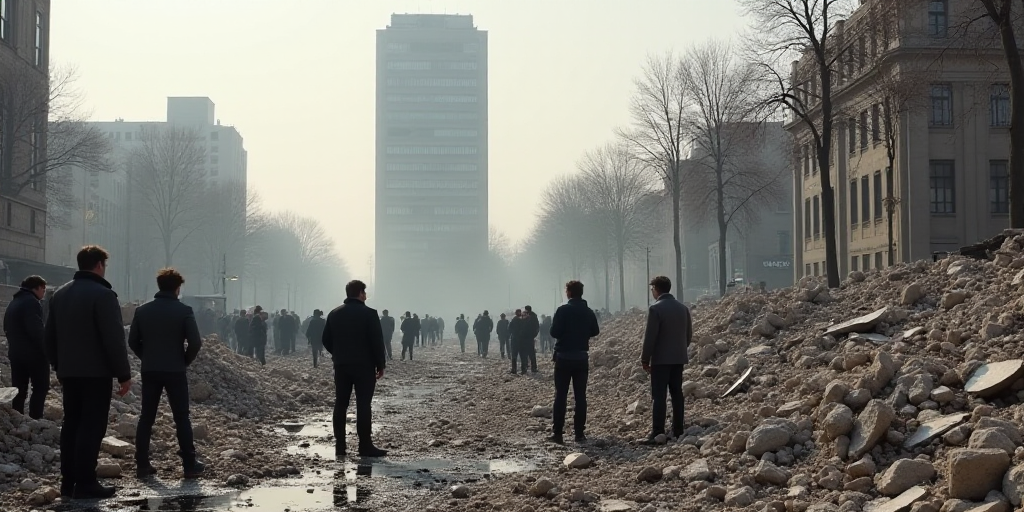Background on Key Figures and Context
The United Nations has released a damning investigation concluding that Israel committed genocide in Gaza, with high-ranking officials including Prime Minister Benjamin Netanyahu inciting such acts. Israel has dismissed these accusations as scandalous.
Navi Pillay, the former UN High Commissioner for Human Rights and a judge at the International Criminal Court, led the investigation. In a press conference in Geneva, Pillay stated, “We are witnessing the breaking and testing of the ‘never again’ promise in real-time. The ongoing genocide in Gaza is a moral outrage and a legal emergency.”
Who are the Key Figures?
- Benjamin Netanyahu: The Prime Minister of Israel, accused by the UN investigation of inciting genocidal acts.
- Isaac Herzog: The President of Israel, also mentioned in the investigation and who condemned its findings.
- Daniel Meron: Israel’s ambassador to the UN in Genebra, who called the report “scandalous” and “false,” alleging it was written by “Hamas allies.”
- Volker Türk: The UN High Commissioner for Human Rights.
- António Guterres: The UN Secretary-General.
UN Investigation Findings and Israeli Response
The 72-page legal analysis by the UN investigation is the strongest conclusion from the organization to date, though it does not speak on behalf of the UN. The investigation cites examples such as mass killings, aid blockades, forced displacements, and the destruction of a fertility clinic to support its genocide conclusion.
Israel, accusing the commission of having a political agenda against it and deviating from its mandate, refused to cooperate. Isaac Herzog, the Israeli President, criticized the investigation for misinterpreting his words and whitewashing Hamas atrocities while victimizing Israelis.
Daniel Meron, Israel’s ambassador to the UN in Geneva, called the report “scandalous” and “false,” claiming it was written by “Hamas allies.” Pillay urged Türk and Guterres to read the investigation and “be guided by the facts.”
Genocide Allegations and International Law
Israel faces a genocide case at the International Court of Justice in The Hague. It denies such accusations, citing its right to self-defense following the deadly Hamas attack on October 7, 2023, which resulted in 1,200 deaths and 251 hostages, according to Israeli figures.
The subsequent war in Gaza has killed over 64,000 people, according to the Gaza Health Ministry, while a global hunger monitor claims parts of it suffer from famine. The 1948 UN Convention on Genocide defines genocide as crimes committed “with intent to destroy, in whole or in part, a national, ethnical, racial or religious group.”
UN Investigation’s Genocide Indicators
To be considered genocide, at least one of these five acts must have occurred:
- Killing members of the group;
- Causing serious bodily or mental harm to members of the group;
- Deliberately inflicting on the group conditions of life calculated to bring about its physical destruction;
- Imposing measures intended to prevent births within the group;
- Forcibly transferring children of the group to another group.
The UN investigation concluded that Israel had committed four of these acts: killing, causing severe physical or mental harm, deliberately inflicting living conditions intended for total or partial destruction of Palestinians, and imposing measures to prevent births.
The investigation cited interviews with victims, witnesses, medical professionals, verified open-source documents, and satellite imagery analysis as evidence. It also highlighted Netanyahu’s November 2023 letter to Israeli soldiers, comparing the Gaza operation to a “total annihilation war” in Hebrew biblical terms.
Pillay’s Comparison to the Rwandan Genocide
Pillay, who previously led a UN tribunal for Rwanda where over a million people were killed in 1994, compared the situations. “They dehumanize their victims,” she said. “They are animals, and thus, you can kill them without moral responsibility.”






